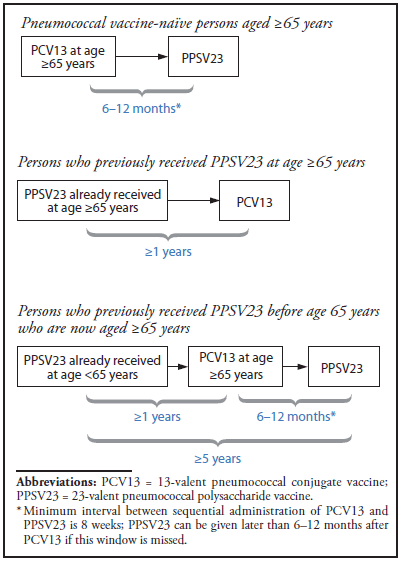For the first time in more than a decade the National Institutes of Health NIH updated its recommendations for asthma diagnosis and treatment. Pocket guide for asthma management and prevention in children 5 years and younger to be updated 2019.
 Gina Strategy 2020 Management Of Asthma Independent Professional Body Guideline Guidelines
Gina Strategy 2020 Management Of Asthma Independent Professional Body Guideline Guidelines
Government health groups and are the first new recommendations since 2007.

New asthma guidelines. The new guidance published in the Journal of Allergy and Clinical Immunology represents the first updates to federal comprehensive asthma management and treatment guidelines in more than a decade and focuses on tailored treatment interventions for specific age groups based on disease severity using inhaled corticosteroids long-acting antimuscarinic antagonists immunotherapy indoor. The new guidelines make asthma treatment much simpler for the majority of patients living with asthma. It aims to improve the accuracy of diagnosis help people to control their asthma and reduce the risk of asthma attacks.
Most notably the authors advise using inhaled corticosteroids ICSs commonly known as inhalers on an as-needed basis for patients with mild or moderate persistent asthma. New Asthma Guidelines Published in The Journal of Allergy and Clinical Immunology an Official Journal of the AAAAI. Guidelines on the Management of Asthma including the Quick Reference Guide8 and the Asthma and Respiratory Foundation NZ Adolescent and Adult Asthma Guidelines 2020.
The National Asthma Education and Prevention Program Coordinating Committee coordinated by the National Heart Lung and Blood Institute of the National Institutes of Health has updated its asthma guidelines. A Quick Reference Guide9. New Zealand Guidelines For The Assessment Of Sleep-Disordered Breathing In.
It does not cover managing severe asthma or acute asthma attacks. SIGN BTS and NICE and are pleased to report on progress towards producing the new joint guideline for the diagnosis monitoring and management of chronic asthma. Fractional Exhaled Nitric Oxide FeNO in Diagnosis Medication Selection and Monitoring Treatment Response in Asthma Remediation of Indoor Allergens eg Dust Mites in Asthma Management Immunotherapy and the Management of Asthma.
New therapies including biologics are now available to treat T2 high asthma. New Asthma Guidelines Update Recommendations for Inhaler Use Add-on Meds and More The new guidelines come from two US. Advise patients with asthma to continue taking their prescribed asthma medications particularly inhaled corticosteroid ICS medications and oral corticosteroids OCS if prescribed.
New recommendations in latest Asthma Handbook. Asthma guidelines need be to updated to incorporate new therapeutics. This guideline covers diagnosing monitoring and managing asthma in adults young people and children.
The 2020 Focused Update to the 2007 Asthma Guidelines Six topics were updated. Recruitment of the Co-Chairs and Topic Advisers is open with closing dates of 31 March and 28 April respectively. DETROIT January 6 2021 Newly released guidelines from the National Institutes of Health NIH for managing and treating asthma will empower patients with mild or moderate asthma more flexibility in using inhalers for optimal effectiveness said co-author Daniel Ouellette MD a Henry Ford Health System pulmonologist and critical care medicine physician.
For the 2020 revision major changes are found in the revision of the management of preschool wheeze and the transfer of the adolescent section to the. This guideline update focuses on those with asthma at the milder end of the spectrum which represents approximately 28-41 of the asthma population in Canada34 Although the per patient cost of asthma is 26 to 5 times higher in an individual with severe compared to mild asthma given the high prevalence of mild asthma the total cost of asthma care for these patients is substantial5. Asthma medications should be continued as usual during the COVID-19.
Asthma is a complex heterogeneous chronic airway disease with high prevalence of uncontrolled disease. The National Asthma Council Australia today launched the Australian Asthma Handbook V21 which outlines important new recommendations that could affect many of the 27 million Australians with asthma. Pocket Guide for asthma management and prevention for adults and children older than 5 years updated 2019.
The purpose of the Asthma and Respiratory Foundation NZ Child Asthma Guidelines is to provide simple practical and evidence-based recommendations for the diagnosis assessment and management of asthma in children aged 11 and under in a quick reference format. The guideline has been commissioned from the National Guideline Centre. Implementation would require adjustment by insurers and pharmacists whose current operations may block patients from filling their ICS-LABA prescriptions early during periods of poor asthma control with associated increased use.
Summary for primary health care providers to be used in conjunction with the main GINA report. NZ Asthma and COPD Guidelines These guidelines have been developed to provide a framework for health professionals to deliver asthma and COPD care and provide up-to-date practical and evidence-based guidance.

